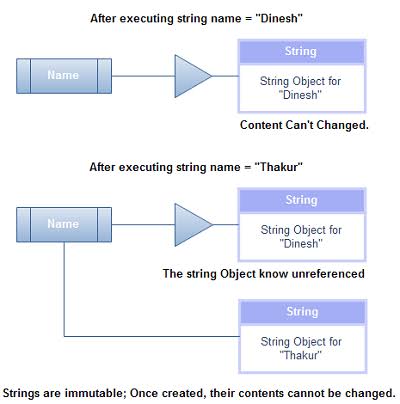Why Are Strings Immutable in Java? Protection and Performance Perks
Why Are Strings Immutable in Java? Protection and Performance Perks
Blog Article
What Is Unalterable Strings and How It Functions
In the world of programs, understanding the idea of unalterable strings is critical for creating durable and safe applications. Unalterable strings refer to strings that can not be modified after they are produced, ensuring data honesty and predictability within the code.
The Basics of Immutable Strings
Unalterable strings, as an essential principle in shows, are personality sequences that can not be changed once they are developed. This means that as soon as a string is appointed a value, that worth can not be changed. In languages like Python and Java, strings are unalterable items, bring about different implications in regards to memory monitoring and data honesty.
One of the crucial benefits of immutable strings is that they give a sense of security in information adjustment. Considering that the material of an unalterable string can not be changed, it guarantees that the initial data stays undamaged, reducing the danger of unplanned modifications during program execution (Why are strings immutable in Java?). This residential property also streamlines debugging processes, as developers can rely on that when a string is defined, its value will certainly not be unintentionally altered
Moreover, immutable strings facilitate effective memory usage. When a new string is created based upon an existing one, as opposed to changing the initial string, the new worth is stored separately. This technique enhances performance by reducing memory fragmentation and streamlining memory allowance processes. Overall, comprehending the basics of immutable strings is vital for grasping programs ideas and maximizing code performance.
Benefits of Unalterable Strings
Structure upon the security and effectiveness benefits of immutable strings, their advantages encompass enhancing code reliability and streamlining concurrent programs jobs. By being unalterable, strings can not be changed after development, which gets rid of the danger of unintentional modifications in the data they store. This inherent immutability makes certain that when a string is created, its worth continues to be continuous throughout the program's implementation, decreasing the chances of insects caused by unanticipated modifications.
In addition, immutable strings add to code dependability by making it simpler to reason regarding the state of a program. Because strings can not be transformed, programmers can trust that a string will certainly constantly hold the same worth, streamlining debugging and upkeep initiatives. This predictability brings about extra reputable and secure codebases.

Application in Programming Languages
Within numerous programming languages, the incorporation of unalterable strings is a fundamental facet that impacts just how data is taken care of and adjusted within code structures. The implementation of immutable strings varies throughout different programming languages, with each language using go to website its own mechanisms to support this idea.

In comparison, languages like C and C++ do find out not have built-in assistance for unalterable strings. Designers in these languages must manually apply immutability by implementing guidelines within their code to stop straight alterations to string objects.
Ideal Practices for Working With Unalterable Strings
When managing unalterable strings in programs languages like Java and Python, sticking to ideal practices makes certain safe and secure and effective data manipulation. One of the essential ideal techniques is to use StringBuilder or StringBuffer as opposed to directly manipulating strings, especially when taking care of extensive concatenation procedures. These courses supply mutable choices for string adjustment, helping to stay clear of unnecessary memory allotments and boosting performance.
Furthermore, when working with delicate information such as passwords or API tricks, it is important to avoid keeping them as plain text in unalterable strings. Using protected storage mechanisms like char arrays or specialized collections for taking care of delicate info assists mitigate safety dangers connected with immutable strings.
Real-world Applications and Instances
Checking out practical implementations of unalterable strings in numerous markets exposes their significant influence on information integrity and system integrity. In the medical care market, immutable strings play an essential duty in making sure the safety and confidentiality of patient data. By stopping unauthorized adjustments to delicate information such as medical records and prescriptions, immutable strings aid keep conformity with stringent personal privacy policies like HIPAA.
Banks likewise take advantage of the immutable nature of strings to boost the security of customer information and transaction documents. Unalterable strings aid avoid scams and unauthorized alterations to economic details, offering a durable defense against cyber risks and making sure the trust and self-confidence of customers.

Final Thought
Ideal methods for functioning with immutable strings include preventing straight modifications and utilizing approaches that return brand-new string items. Real-world applications of immutable strings include data security, caching, and string control tasks.
Unalterable strings refer to strings that can not be changed after they are created, ensuring data integrity and predictability within the code. When a new string is developed based on an existing one, rather than modifying the initial string, the brand-new value is stored separately.In languages like Java and Python, strings are immutable by default, implying that once a string things is developed, its worth can not be changed - Why are strings immutable in Java?. Ideal practices for working with immutable strings include preventing direct alterations and making use of methods that return new string items. Real-world applications of unalterable strings include data security, caching, and string adjustment tasks
Report this page